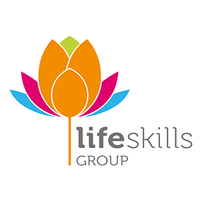
I’m not sure if this set of rules for teachers is real or not, it is funny though. It is often attributed to an 1872 posting in Monroe County, Iowa. If it is real, I wonder if the teachers who taught under these rules had the time in between cleaning chimneys and bringing a scuttle of coal for the day’s session, to also nurture emotional regulation skills with their students. I’d like to think that the permission given in rule 3 for teachers to whittle the nibs to the individual tastes of the pupils is a tip of the hat towards differentiation and caring for student wellbeing. While the rules for teachers have changed, for better or worse, there is still an enormous amount on the plate of an educator. So, where can wellbeing fit in? And how important is it?
In my time working in partnership with UNICEF, I spent time with The Changing Childhood Project. The project asked young and older people across 55 countries about what it was like to grow up in today’s world (Report, methodology and codebook). In the findings 3 responses stood out for me:
-
On average more than a third (36%) of young people (15-24yr olds) say they experience worry, anxiety, or nervousness.
-
Of this group, those 20–24-year-old are much more likely to be anxious, nervous or worried than those 15-19 years old.
-
Feeling less financially secure is the biggest contributing factor to causing anxiousness, nervousness and worry with this group.
I always thought the idea of school was to support young people acquire the knowledge and skills through intentionally planned experiences to ensure they are equipped to thrive as contributing members of society. Perhaps not the most glamorous description but a pretty accurate summary, I think. Therefore, my teaching philosophy always reflected supporting the development of the whole child, that is their emotional, mental, physical and social health.
Naturally, when I saw the needs of 20-24 year olds so starkly articulated, I reflected on what we are doing in schools with 5-18 year olds to help them have the skills to navigate the future in front of them. And I thought about my role as a teacher in that…
Here are the 3 things that I thought I could do:
- Normalise emotions. No one is happy all of the time, despite what their socials say.
- Work in partnership with parents and carers. Teachers and parents need to work together to send the same messages about wellbeing.
- Build strategies for functioning through emotions. Everyone will have a bad day at some point, lets equip our students with a repertoire of skills to draw upon when it comes.
[ Rydr Tracy is the Head of Education at Life Skills Group and former Director Strategic Priorities at CESE. He is a specialist in evidence-informed practice in educational innovation, with a career focus on strategic change that improves student outcomes. He draws on a rare blend of successful experience in schools, system leadership roles and industry practice – experience that has given him deep understanding of the complexities of the education sector from the classroom to the boardroom and a demonstrated capacity to generate practical recommendations that are grounded in context and evidence. ]
.png?width=500&height=374&name=Logo_transparent%20(2).png)





